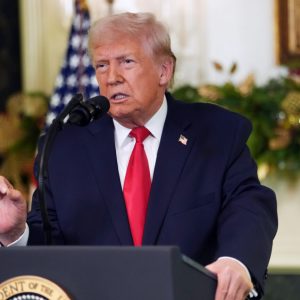New York City Mayor-elect Zohran Mamdani (D) announced that former Federal Trade Commission Chair Lina Khan will serve as a co-lead of his transition team. Khan, who led the FTC under President Biden, will join three longtime City Hall veterans to help guide Mamdani’s transition, focusing on policies that prioritize working New Yorkers over billionaires. “Our transition leaders will help build a City Hall committed to excellence, integrity, and a hunger to solve old problems with new solutions,” Mamdani said. Khan praised the mayor-elect’s vision, calling it a “new model for Democratic governance.”
Khan’s tenure at the FTC was highly controversial. She spearheaded aggressive antitrust enforcement and crackdowns on corporate mergers, targeting unfair business practices, including junk fees and mandatory arbitration clauses. While progressives celebrated her efforts to challenge Big Tech, critics argue her approach fueled political backlash, pushing influential tech leaders toward the political right. Before the FTC, Khan taught at Columbia Law School and advised former Commissioner Rohit Chopra, developing the anti-corporate perspective that defined her leadership at the agency.
Mamdani won the mayoral race against a bipartisan coalition supporting former Governor Andrew Cuomo. Former President Trump attributed Republican losses in Tuesday elections to the government shutdown and his absence from the ballot. Meanwhile, Democrats secured wins in New Jersey and Virginia, with Mikie Sherrill and Abigail Spanberger defeating their Republican opponents by double-digit margins. Amid this, House Republicans are reportedly exploring legal avenues to block Mamdani’s swearing-in, citing the 14th Amendment’s post–Civil War “insurrection clause.” The New York Young Republican Club claims Mamdani’s past statements supporting resistance to ICE and ties to left-wing organizations could constitute “giving aid or comfort” to enemies of the United States. Mamdani’s transition, Khan’s involvement, and the political maneuvering surrounding his election highlight the ideological battles shaping both New York City and national politics, as left-wing governance, regulatory activism, and partisan disputes converge.





